
This media resources page provides members of the media with information; resources; and broadcast-, print-, and web-quality imagery developed during the Galápagos Rift Expedition 2011 expedition.
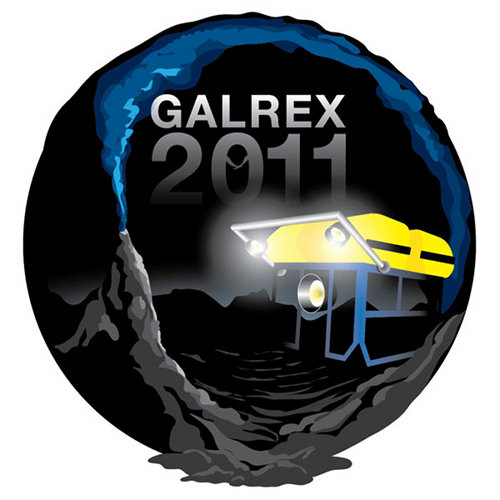
Logo for the Okeanos Explorer Galapagos Rift Expedition 2011. Image courtesy of NOAA Office of Ocean Exploration and Research. Download larger version (jpg, 412 KB).
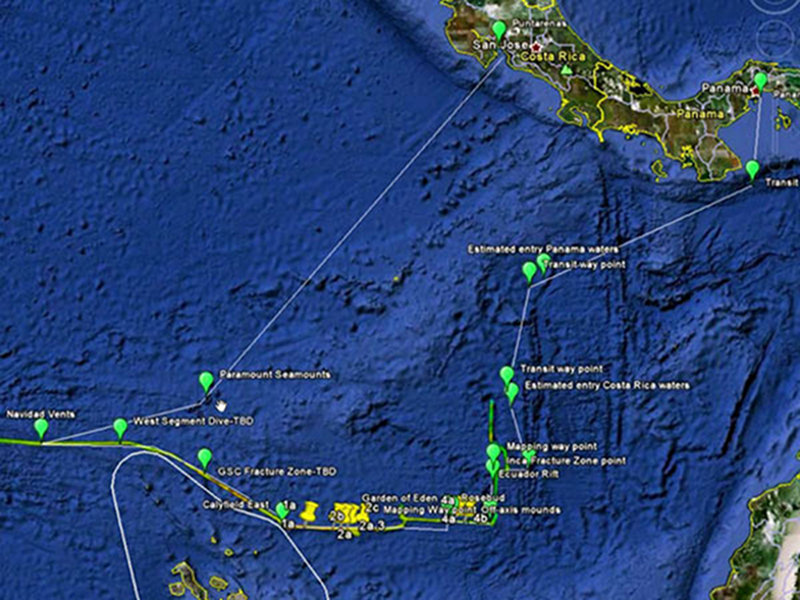
The original cruise plan overlaid in Google Earth along the Galapagos Rift. Image courtesy of NOAA Office of Ocean Exploration and Research. Download larger version (jpg, 603 KB).
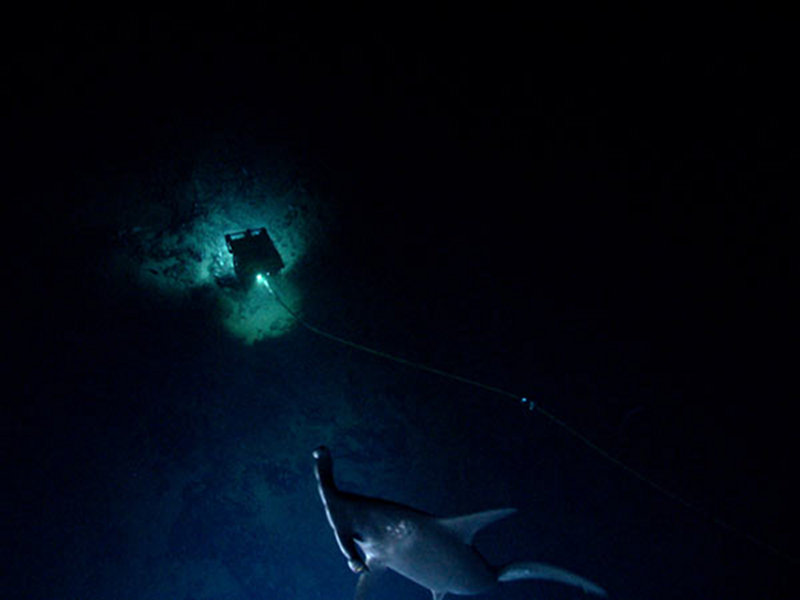
Hammerhead shark investigating the two-body ROV system. Image captured by the Little Hercules ROV at 600 meters depth on the Paramount seamounts on July 14, 2011. Image courtesy of NOAA Office of Ocean Exploration and Research. Download larger version (jpg, 1.1 MB).
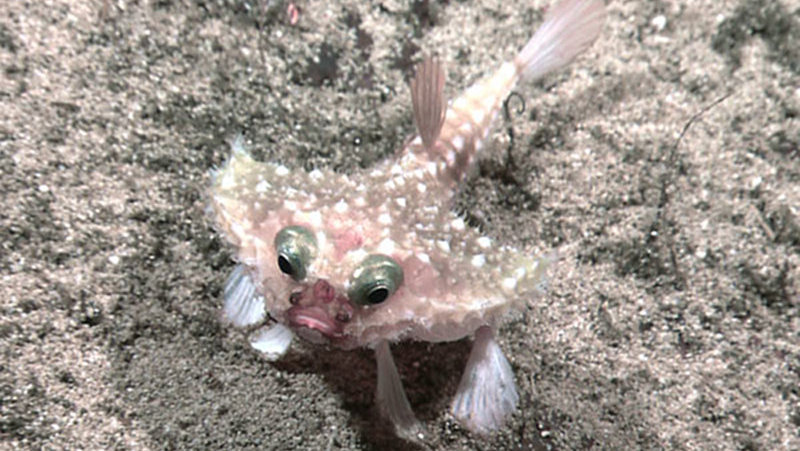
Deep-sea fish, such as this toadfish, have evolved bizarre morphological features as adaptations to this extreme enviroment. Image captured by the Little Hercules ROV at 600 meters depth on the Paramount seamounts on July 14, 2011. Image courtesy of NOAA Office of Ocean Exploration and Research. Download larger version (jpg, 1.6 MB).
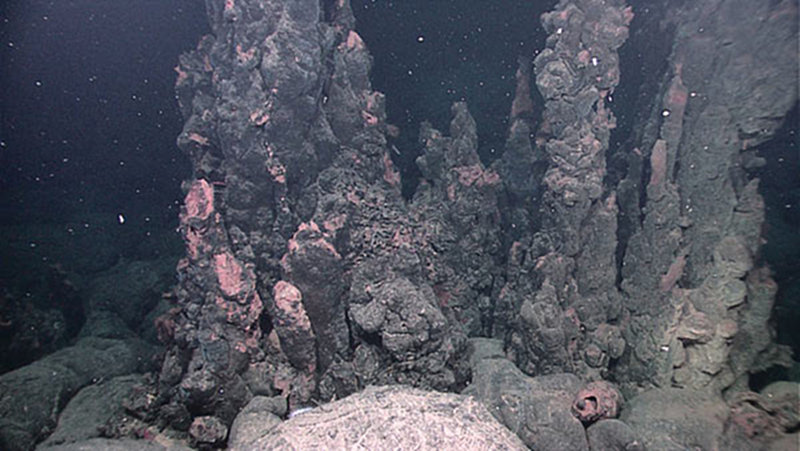
A field of extinct sulfide chimneys, several meters high, rise above the surrounding seafloor. The pink staining is a combination of biological and chemical processes. Image courtesy of NOAA Office of Ocean Exploration and Research. Download larger version (jpg, 1.8 MB).
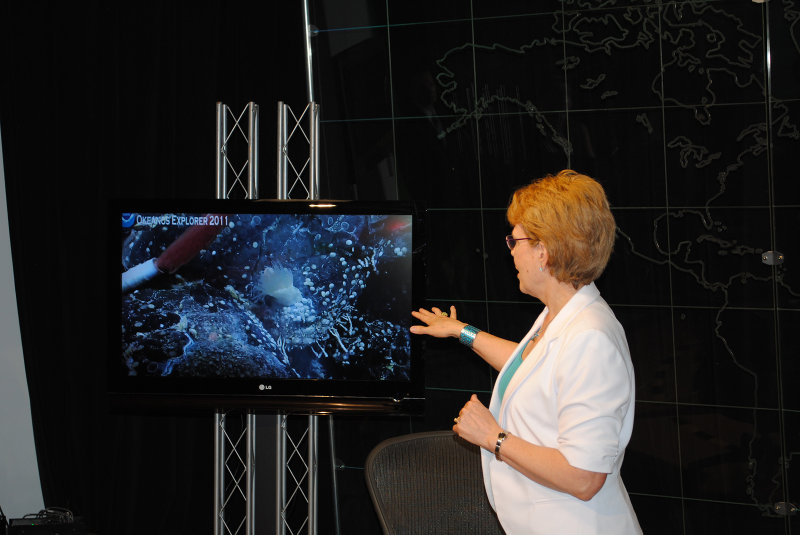
Dr. Lubchenco views a newly discovered hydrothermal vent while visiting the University of Rhode Island. The Okeanos Explorer team had been searching for these elusive vents for 8 days before they found this active, young vent. Image courtesy of NOAA Office of Ocean Exploration and Research. Download larger version (jpg, 2.1 MB).
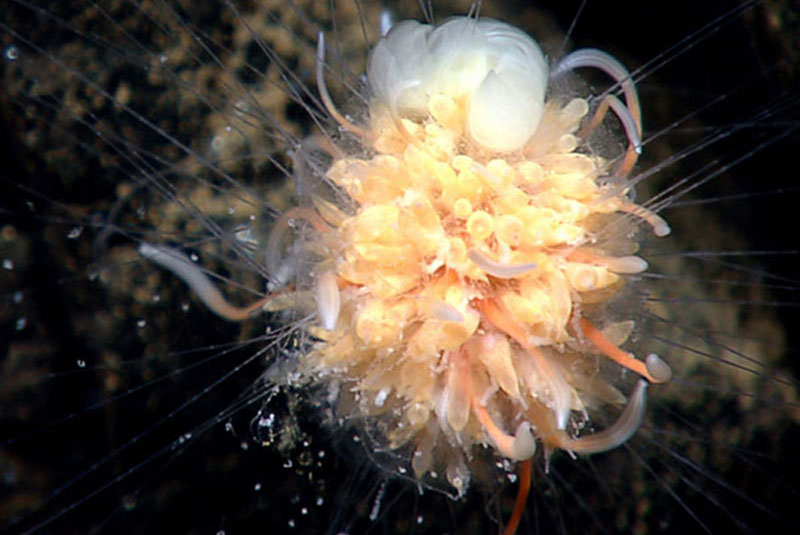
This beautiful creature imaged during the 2011 expedition was first discovered by geologists in 1977. Scientists now know that it is a siphonophore, a relative of the Portuguese man-of-war. Image courtesy of NOAA Office of Ocean Exploration and Research. Download larger version (jpg, 1.1 MB).
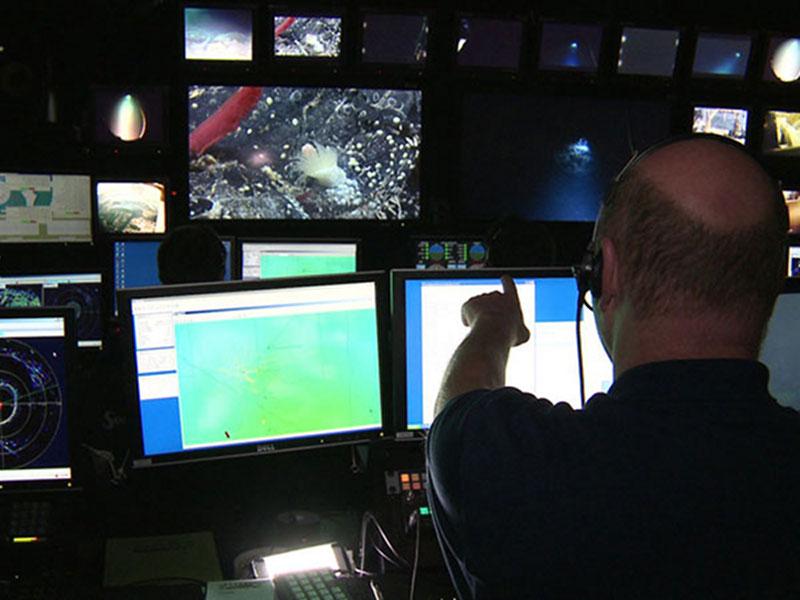
View of the Okeanos Explorer Control Room during the discovery of a new vent field. Science Team Lead Tim Shank points toward the image of a tiny juvenile tubeworm on the monitor. Image courtesy of NOAA Office of Ocean Exploration and Research. Download larger version (jpg, 798 KB).
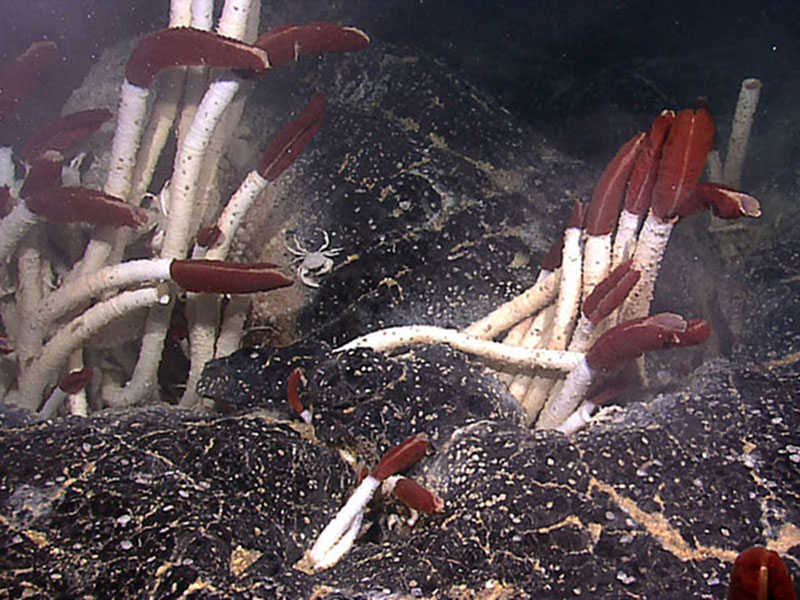
Riftia tubeworms colonize diffuse vent habitats between broken pieces of lava. Small mussels, less than two inches, were growing in cracks adjacent to vent openings (lower right). Image courtesy of NOAA Office of Ocean Exploration and Research. Download larger version (jpg, 1.5 MB).
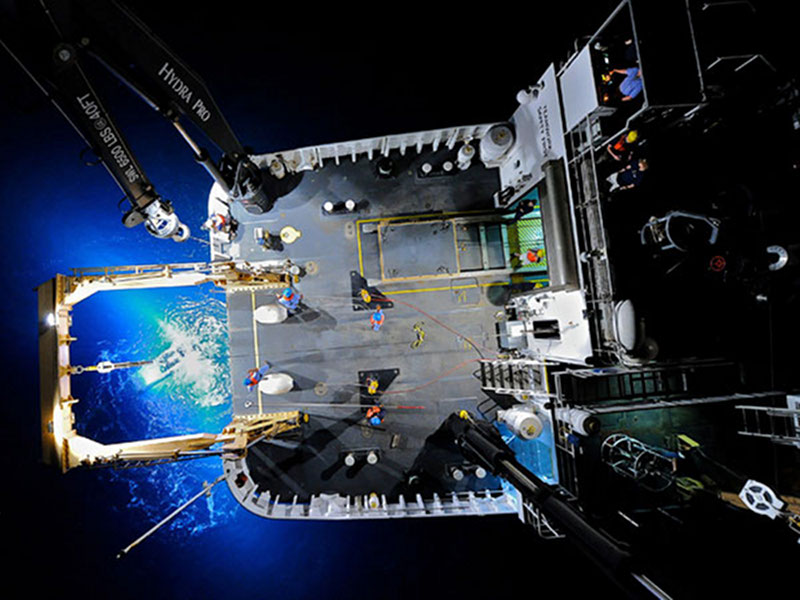
A unique down-looking view of a ROV recovery at night. Image courtesy of NOAA Office of Ocean Exploration and Research. Download larger version (jpg, 3.5 MB).
Cameras on the ROV operated by NOAA ship Okeanos Explorer (the Institute of Exploration's "Little Hercules" ROV) and cameras on the Seirios Camera Sled that operates with the ROV, obtained these images on this video sequence. Video courtesy of NOAA Office of Ocean Exploration and Research. Download (mp4, 34.8 MB).
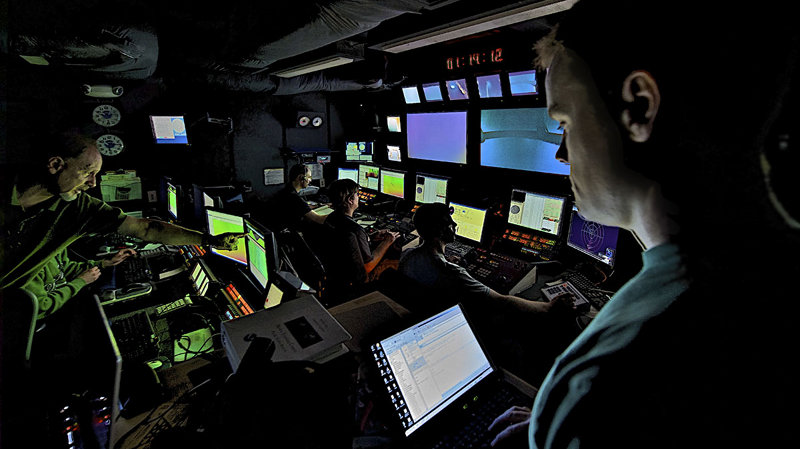
NOAA Ship Okeanos Explorer Control Room while ROV operations are underway. Image courtesy of NOAA Office of Ocean Exploration and Research. Download larger version (jpg, 424 KB).
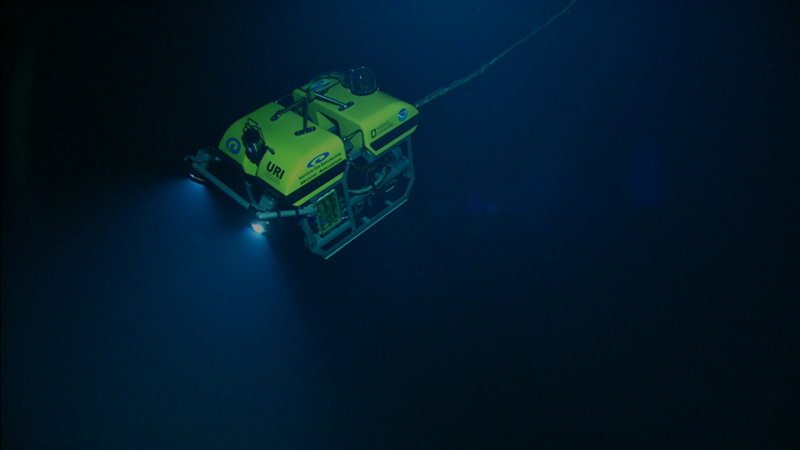
The Institute for Exploration's Little Hercules ROV, operated by NOAA ship Okeanos Explorer. Little Herc is capable of recording HD video at depths of 4,000 m. Image courtesy of NOAA Office of Ocean Exploration and Research. Download larger version (jpg, 642 KB).
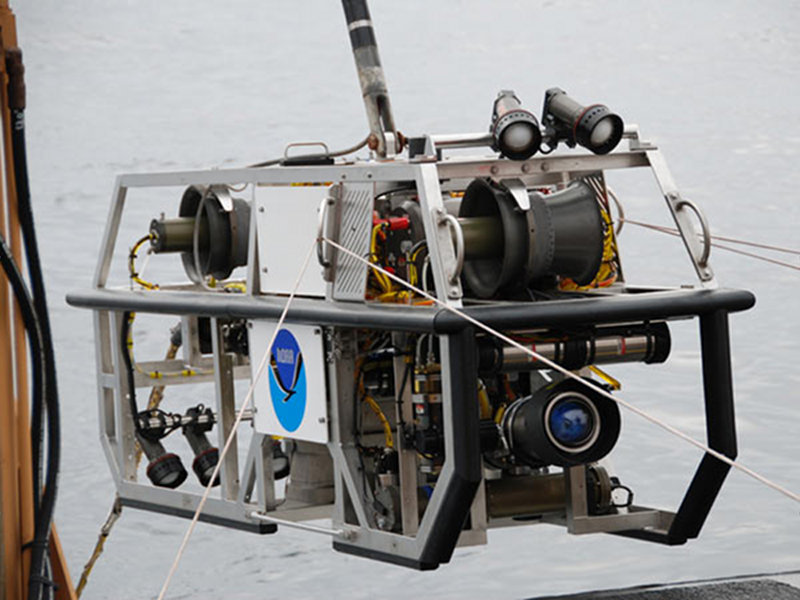
The Galápagos Rift Expedition 2011 marks the debut of a new camera and lighting platform named “Seirios”. We expect that the new and improved lighting system will markedly enhance our exploration capability. Image courtesy of NOAA Office of Ocean Exploration and Research. Download larger version (jpg, 3.5 MB).